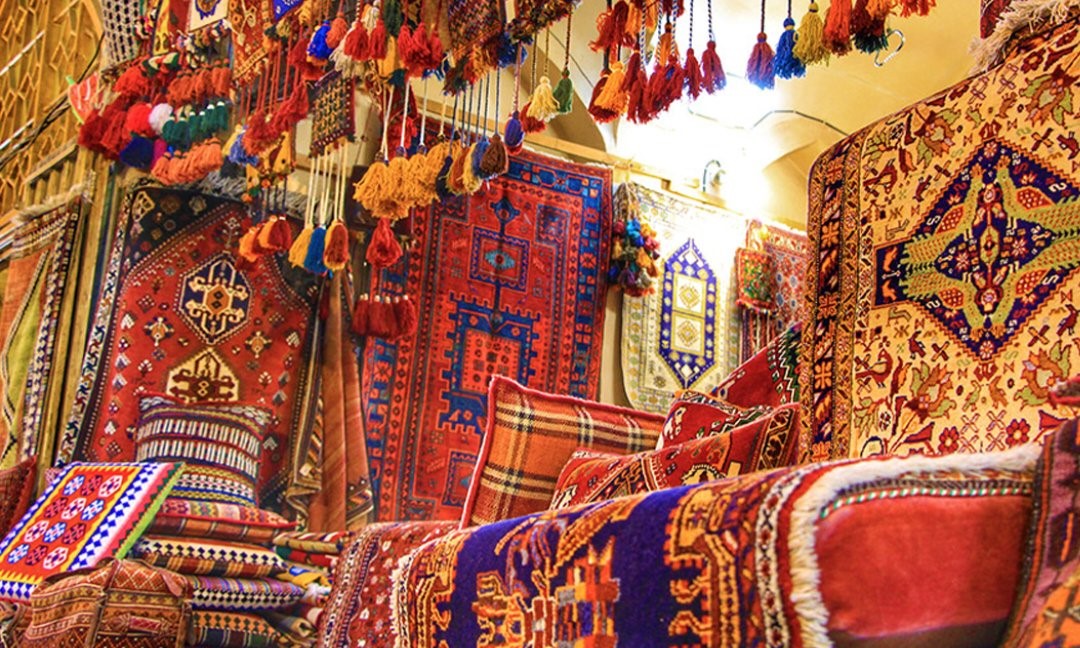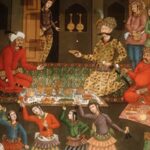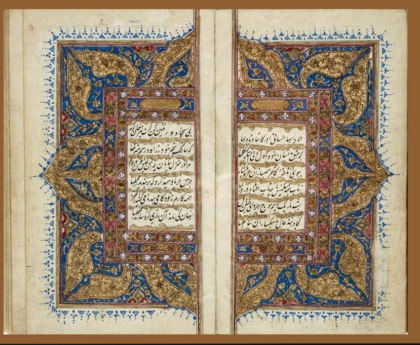1. Taarof
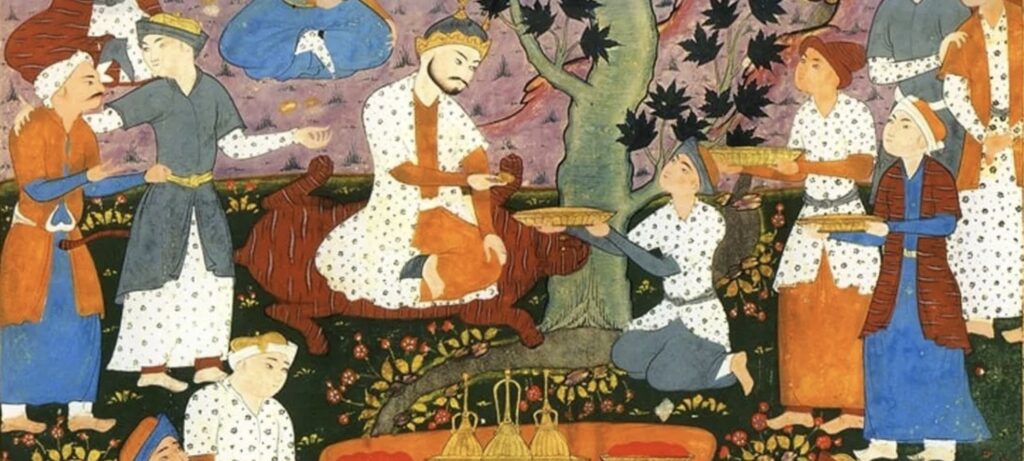
Taarof is the customary back-and-forth of polite gestures used when giving and receiving gifts, food, money, and more.
Similar to the “who pays the bill” charade in some cultures, it is done to show respect, hospitality, and reverence for elders, and politeness. Taarof is the most common in hospitality settings, where guests are being served by a host or hostess. When presented with food or drink, it is customary to politely turn it down at first, the same as with a gift. In order to show your appreciation for your generous host, it is important to appropriately thank them for their time, effort, and care.
2. Tea
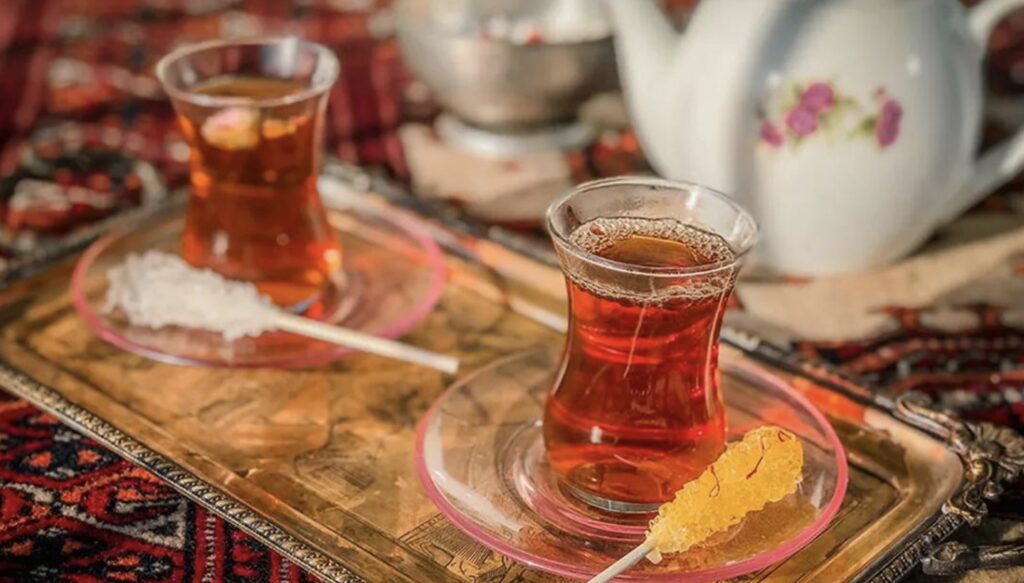
Tea drinking is an integral part of Iranian culture and life. From friendly and lively Qaveh Khanehs that dot every street in Iran to the warm and welcoming family homes, Tea symbolizes the rich Persian heritage that continues to define the rich Iranian culture of harmony and hospitality, kindness and cordiality, and above all, generousness and geniality.
3. Burning Esfand
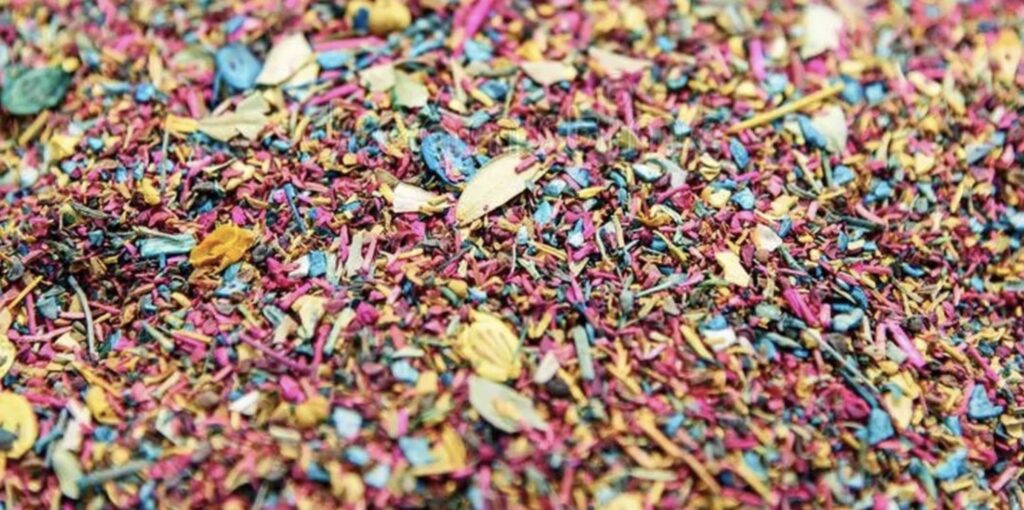
In different parts of the world, people burn various aromatic herbs to cleanse a person and avoid devilish vibes. Iranians specifically believe in the power of esfand, or wild rue seeds, to protect you and your place from evils and curses.
Burning Esfand is a Zoroastrian tradition that Iranians brought to the Islamic era. They thought that burning this divine herb would cast away sorrow, illness, and negative energies; therefore, it has a strong presence in rituals and special ceremonies like weddings or Nowruz.
4. Traveller Water
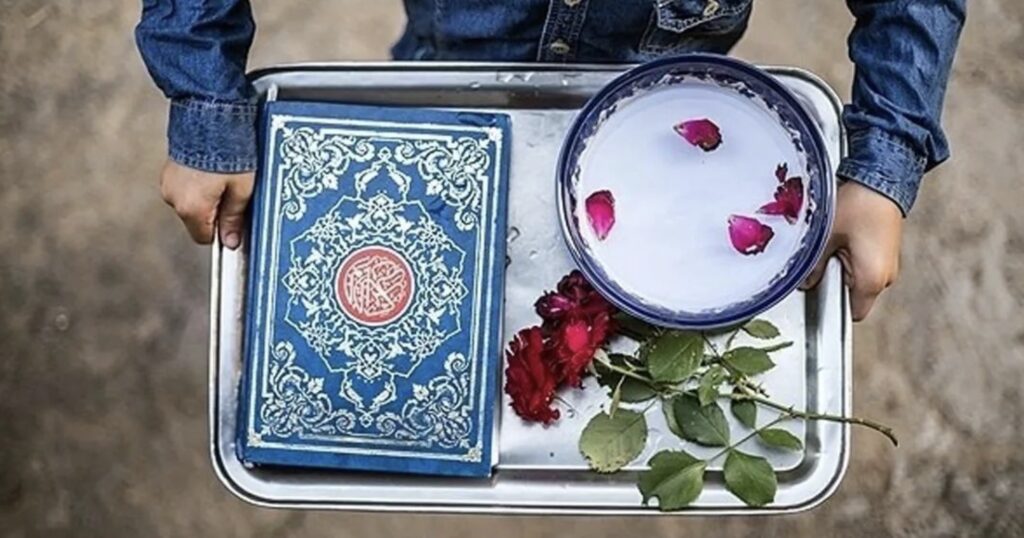
When a friend or family member goes on a trip, Iranians prepare a tray that has a Quran and a glass of water (symbolizing pure flowing water). The traveler then passes under the Quran three times for protection. As they leave the reminding family members toss the water from the glass behind them, a gesture symbolic of ensuring their safe return.
5. Sur Dadan
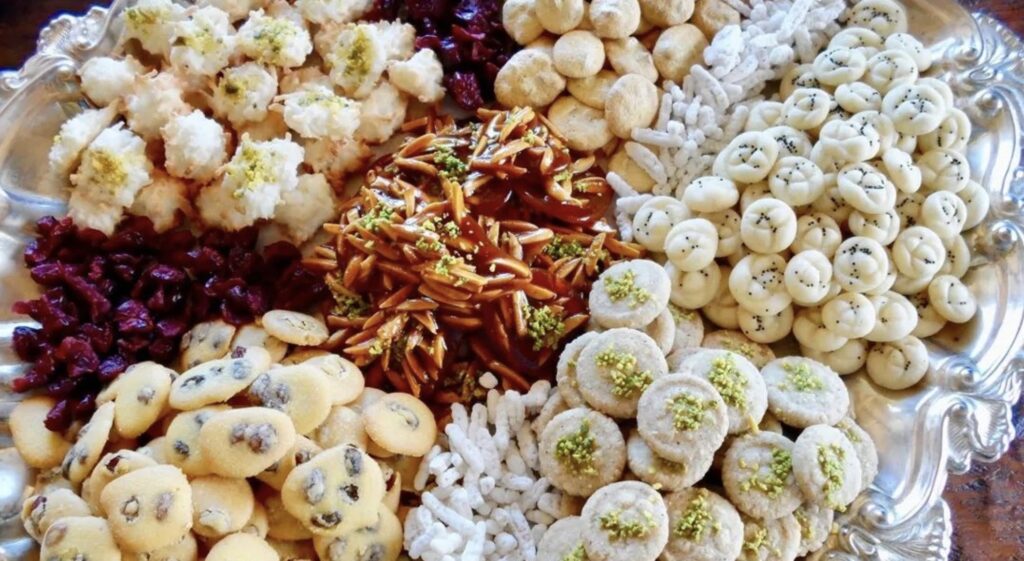
Sur dadan is literally defined as giving a party or banquet. The event is a thrown in order to celebrate something you’ve bought that is of value (like a house or car), or another big occasion like a graduation. Essentially, you are bilged to throw a party, so that others are able to help you celebrate your accomplishments.
6. Nazri & Kheirat
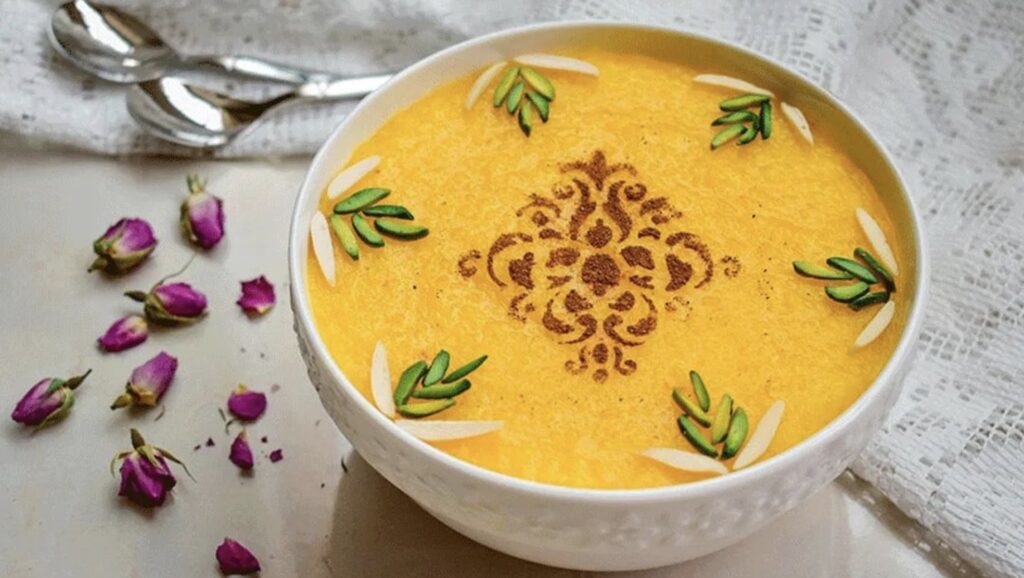
Nazri are foods, such as saffron rice pudding or stews, that are made in large quantities and distributed freely during religious ceremonies and celebrations. It is believed that by eating nazi, a person will be blessed.
Similarily, kheirat are open boxes of sweets, publicly placed by individuals to honor their loved ones who have passed on. When a person takes the sweet, they say a prayer for the deceased.
7. Wish Bone
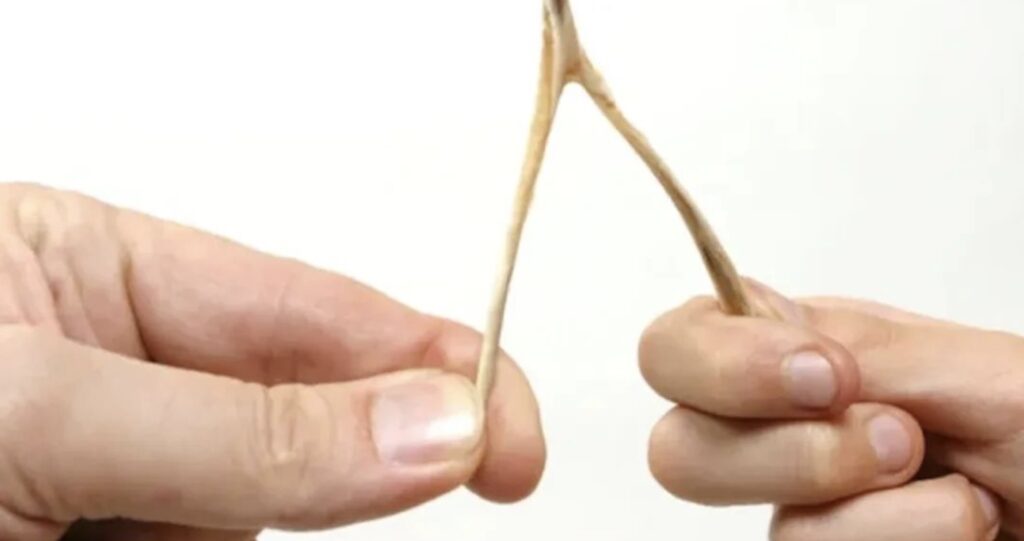
The wish bone game requires that two people first agree on a prize. Each person takes one end of the wish bone and they break it in half. From the second the wish bone is broken in two, the games begin! The concept is for either one of the two players to hand something to the other and for the person who takes the item to forget to say Yadameh (I remember). The idea is to say yadameh each time an item is taken from the hands of the other person. The first person that forgets to say yadameh loses the game.
8. Cooling Watermelon
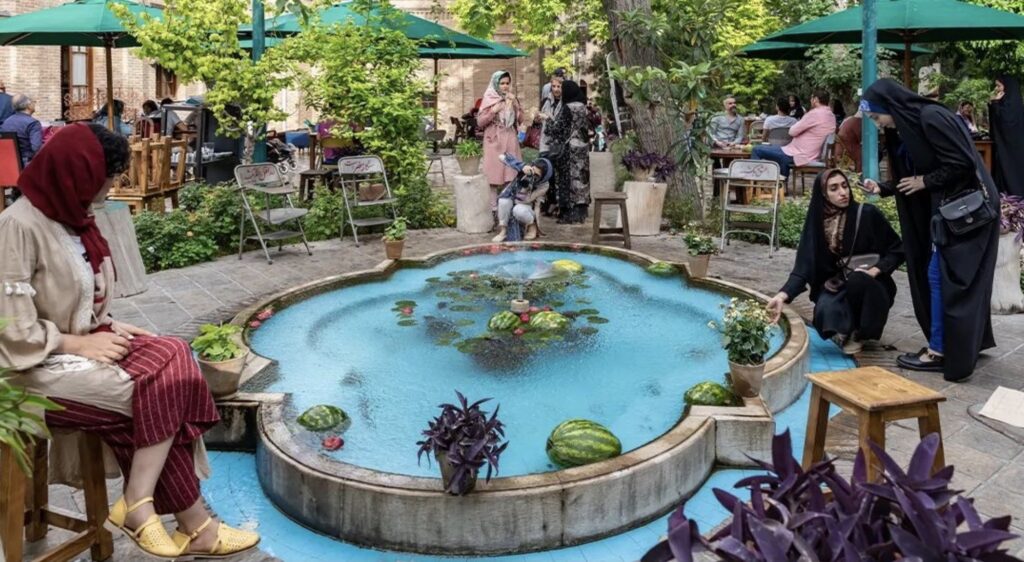
Cooling watermelons in a fountain is not common – however, it can be seen in more traditional communities like the Chaharmahal and Bakhtiari provinces. By placing the melon in the nearest body of water to chill, it is able to reach a crisp, cool temperature.
9. Eating
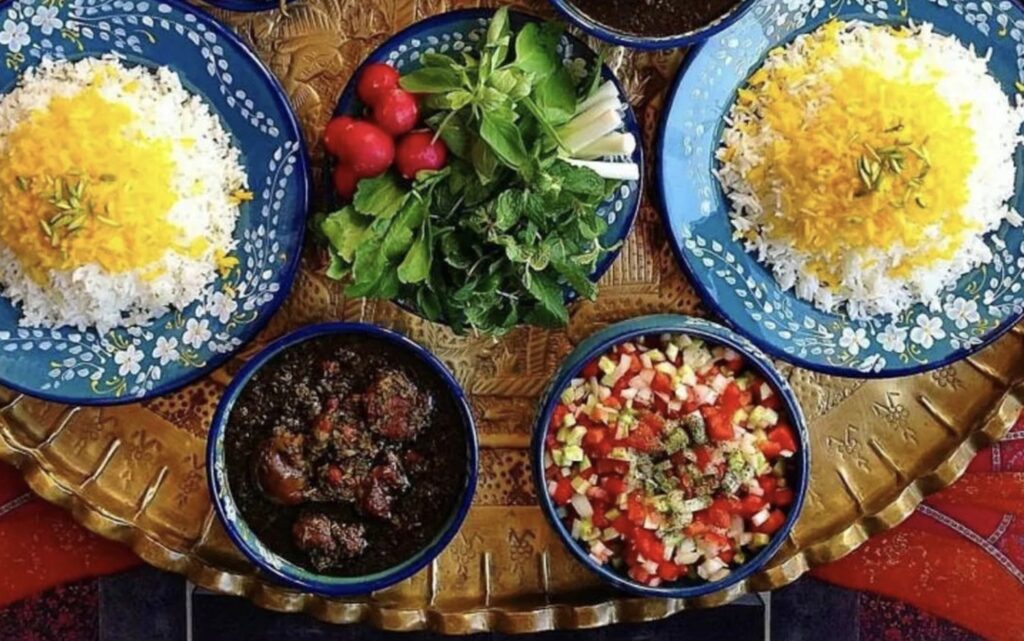
When eating at an Iranian’s home, expect to be offered second and even third servings. Very similar to concepts of taarof, it is considered polite and respectful to your host or hostess, that you accept and finish everything placed in front of you.

